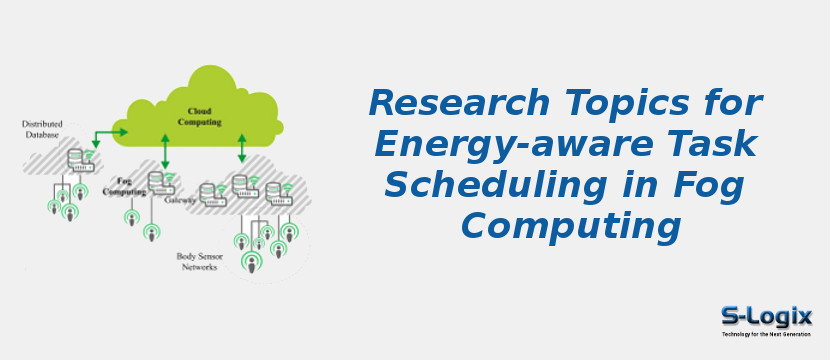Energy-aware task scheduling in fog computing allocates computing resources in a fog network to different tasks energy-efficiently. The goal is to minimize the energy consumption of the fog nodes by analyzing whether the tasks are executed within their deadline.
Energy-aware task scheduling is achieved by contemplating factors such as the computational requirements of the tasks, the energy consumption of the fog nodes, and the availability of resources. The scheduler assigns tasks to the most energy-efficient nodes, considering each node-s current load and power consumption.
With energy-aware scheduling, fog computing can increase the overall energy efficiency of the network, reduce carbon emissions, and extend the life of the devices. Performance metrics used in energy-aware scheduling are
• Makespan.
• CPU execution time.
• Power consumption.
• Average latency.
• Energy-Efficient Scheduling: It assigns tasks to the most energy-efficient node that can meet the required QoS.
• Sleep-Wake Scheduling: It schedules the nodes to sleep or wake based on the availability of tasks to reduce energy consumption.
• Hybrid Scheduling: It combines multiple policies to achieve better energy efficiency and QoS.
In addition to QoS and effectual resource usage of fog network resources, minimizing the power consumption of fog nodes is another key requirement for fog systems. A power-aware approach using dynamic voltage and frequency scaling (DVFS) techniques is introduced to reduce power consumption. Furthermore, a hybrid evolutionary algorithm for invasive weed optimization and cultivation (IWO-CA) is applied to construct effective task sequences.
• Dynamic voltage and frequency scaling (DVFS) :
A key feature of DVFS is the dynamic voltage and frequency change of accessible processors. DVFS tries to choose the right voltage and frequency for the processor while your application is running.
• Invasive weed optimization and cultivation (IWO-CA) :
IWO is a progressive algorithm encouraged by the growth of weeds in nature. The IWO algorithm is based on a population containing three phases:
• Initialization.
• Replication and Spatial Distribution.
• Conflict Elimination.
• Quality of Service (QoS) Degradation: Energy-aware task scheduling may lead to QoS degradation if energy consumption optimization is given priority over QoS requirements.
• Interference between tasks: Task interference can occur due to resource contention, leading to increased energy consumption and reduced QoS.
• Resource Constraints: Fog computing systems have limited resources and must balance energy consumption and QoS requirements while scheduling tasks.
• Dynamic Resource Management: Energy-aware task scheduling can be combined with dynamic resource management techniques to optimize energy consumption in real time.
• Distributed Scheduling: Distributed scheduling algorithms can be developed to handle large-scale fog computing systems and optimize energy consumption.
• Trade-off between Energy Consumption and QoS: Future research can focus on finding the optimal trade-off between energy consumption and QoS to ensure energy-efficient task execution while satisfying the required QoS.
• Collaborative Scheduling: Collaborative scheduling algorithms can be developed to enable nodes to work together to optimize energy consumption.
• An energy-aware task scheduling model using ant-mating optimization in fog computing environment
• Energy-aware marine predators algorithm for task scheduling in IoT-based fog computing applications
• Energy-aware metaheuristic algorithm for industrial-Internet-of-Things task scheduling problems in fog computing applications
• A Deep Learning Model for Energy-Aware Task Scheduling Algorithm Based on Learning Automata for Fog Computing
• Delay and energy-aware task scheduling mechanism for fog-enabled IoT applications
